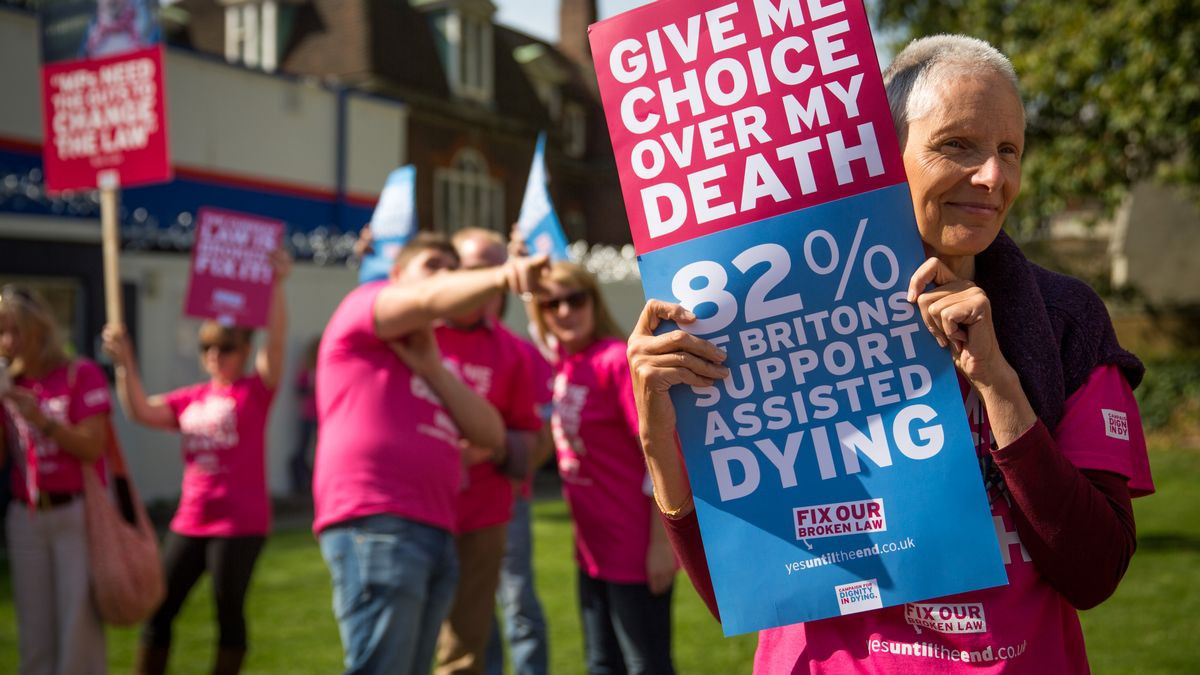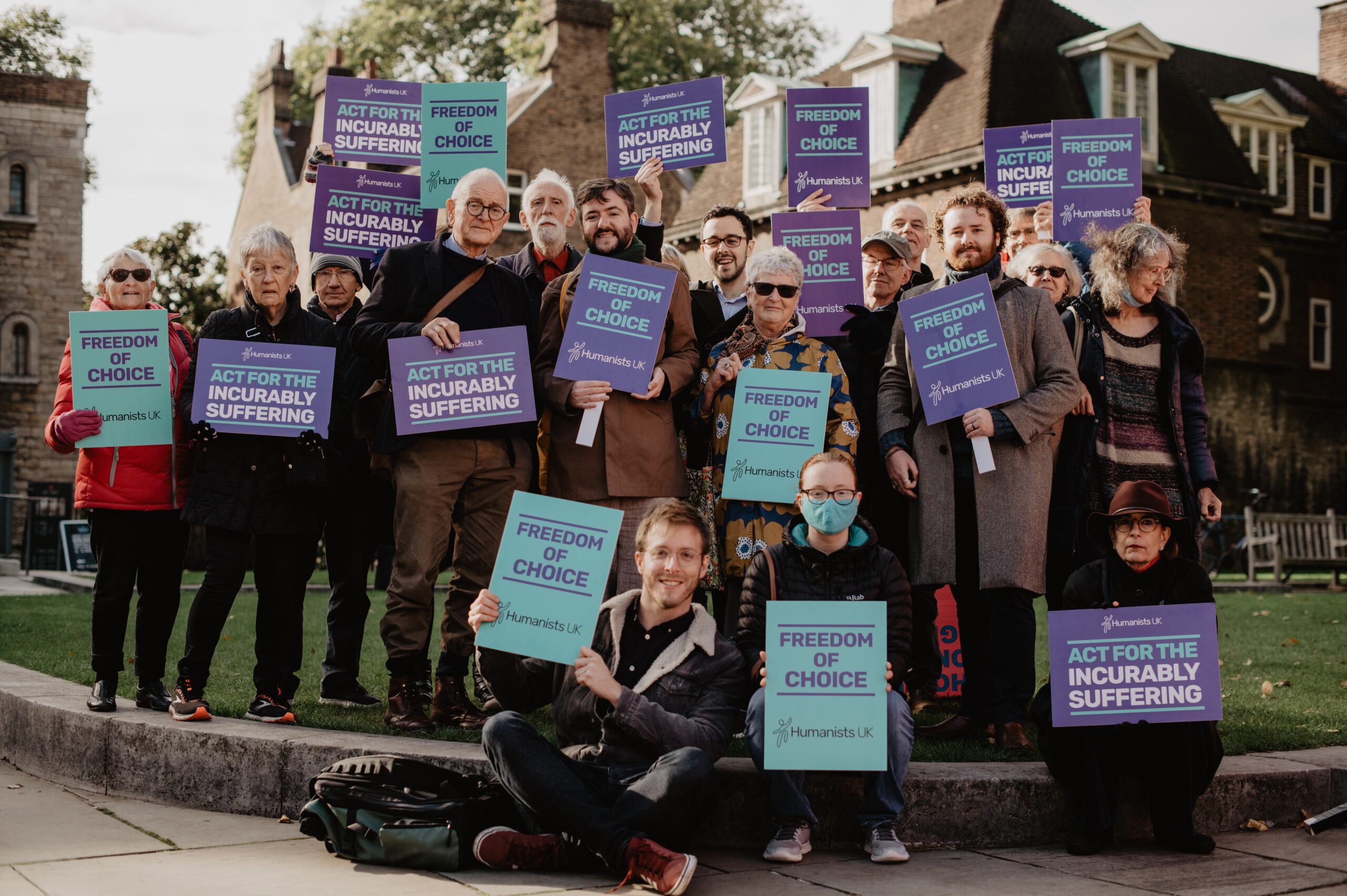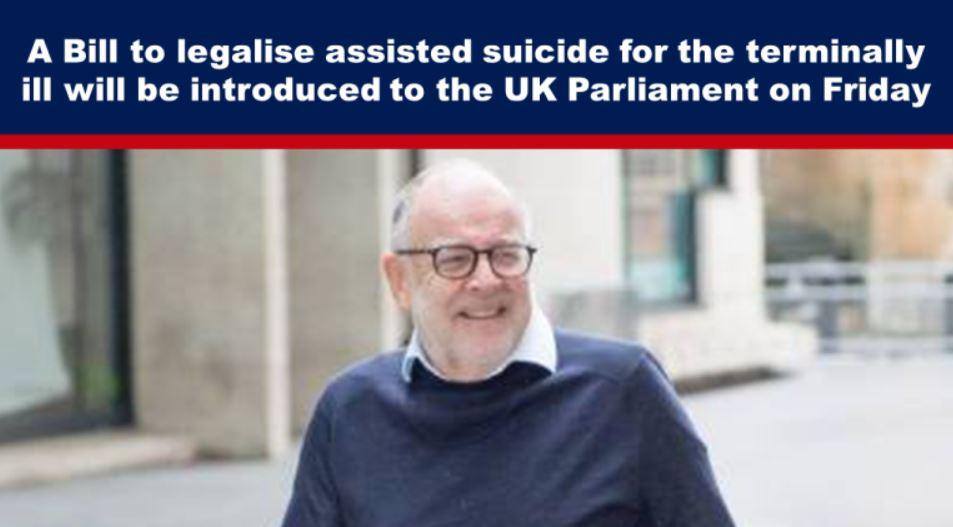The Terminally Ill Adults (End of Life) Bill, from Labour MP Kim Leadbeater, is expected to be published on Tuesday and is likely to run to more than 40 pages.
She added: “I have been consulting very widely over the past few weeks, mainly because I’m not the sort of person who would embark on a task like this without delving deeply into the issue first.
“But also because I am clear that if we are to have a new law it must be a good law.”
She said she had spoken with medical professionals, lawyers, faith leaders, disability rights campaigners, palliative care professionals and “families who have first-hand experience of the terrible pain and trauma that results from the current law and terminally ill people who know what awaits them and simply want the right to choose to die on their own terms”.
The MP continued: “I was particularly moved by those whose loved ones faced an unbearably painful end despite having had access to the best possible palliative care. Above all, it is their voices we should be listening to in the coming days and weeks.”
The Bill has support from the Dignity in Dying campaign group, which published a letter to MPs from seven current and former nurses urging them to support the proposal.
“We are joined by a single wish – all of us want choice,” the group, which includes two palliative care nurses, wrote.
“For most, palliative care in hospice, hospital or at home will help them have the death that they want.
“But we feel we have to speak up for those for whom palliative care cannot relieve suffering, or provide the peaceful and painless death that everyone deserves.”
But Dr Gordon Macdonald, chief executive of Care Not Killing, insisted MPs must reject the Bill.
“The safest law is the one we currently have,” he said.
“This Bill is being rushed with indecent haste and ignores the deep-seated problems in the UK’s broken and patchy palliative care system, the crisis in social care and data from around the world that shows changing the law would put pressure on vulnerable people to end their lives.”
UK Parliament Votes on Assisted Dying: Key Provisions and Controversies
MPs will debate Kim Leadbeater’s private members’ bill on November 29, which would allow terminally ill adults to have the choice to end their life.
The Terminally Ill Adults (End of Life) Bill will only apply to people who are already dying and excludes both disability and mental illness as eligibility criteria.
Under the legislation, a terminally ill person resident in England and Wales who expected to die within six months will be able to choose to end their life, provided they have the mental capacity to make such a choice. At each stage of the process, the person must express a “clear, settled and informed” wish, free from coercion or pressure. Those wanting to end their lives would need to make two separate declarations, witnessed and signed, with the option available to change their mind at any time.
Two independent doctors would need to be satisfied that the person is eligible and, if necessary, consult a specialist in their condition and receive an assessment from an expert on their mental capacity. The application would then go before a High Court judge.
Both doctors would have to satisfy themselves that the person is eligible and has made the decision voluntarily and ensure the person is making an informed choice, including being made aware of other treatment options, including palliative and hospice care.
No doctor will be under any obligation to participate in any part of the process, according to the bill, and medication to end their life must be self-administered.
Divisions within the Labour Party
Labour MPs will get a free vote on the bill, which has divided the Cabinet. Several members, including Health Secretary Wes Streeting, Business Secretary Jonathan Reynolds and Justice Secretary Shabana Mahmood, have already signalled they will vote against the bill when it comes to a vote later this month.
Science Secretary Peter Kyle, Energy Secretary Ed Miliband, Culture Secretary Lisa Nandy and Northern Ireland Secretary Hillary Benn have all expressed support for the bill.
Some members of the Cabinet, including Chancellor Rachel Reeves, are understood to still be undecided on the matter.
The Debate Continues: Arguments for and Against
The debate surrounding assisted dying in the UK continues to be a complex and emotionally charged one. Supporters argue that it provides a crucial choice for those facing unbearable suffering at the end of life. They highlight cases of individuals forced to travel abroad or resorting to desperate measures due to the current law’s restrictions.
Opponents raise concerns about the potential for coercion, arguing that vulnerable individuals might feel pressured into making a decision they do not truly want. Others worry about the slippery slope argument, fearing that legalizing assisted dying could lead to its expansion to other groups, including those with disabilities or mental illnesses.
The bill, which has been met with both support and opposition, is likely to spark further debate on the ethics and practical implications of assisted dying in the UK.
A Choice for the Dying?
The proposed legislation aims to provide a delicate balance between respecting individual autonomy and ensuring robust safeguards against coercion. Whether it can successfully navigate these complexities and ultimately secure passage remains to be seen. The debate over assisted dying is likely to continue for some time, reflecting the profound ethical and societal implications of this sensitive issue.



















